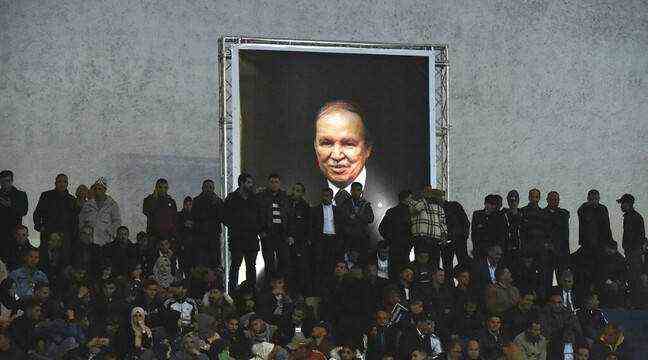Driven from power in 2019 after massive protests against his desire to run for a new term, former Algerian President Abdelaziz Bouteflika died overnight from Friday to Saturday at the age of 84.
After 20 years in power, his fall had become inevitable after weeks of massive protests against his desire to run for a fifth five-year term. Two years after his withdrawal from political life, where is the political situation in Algeria?
To understand, 20 minutes interviewed Kader Abderrahim, research director at IPSE (Institut Prospective & Sécurité en Europe), specialist in Maghreb and Islamism, lecturer at Sciences Po Paris and author of two books Geopolitics of Morocco (2019) and Geopolitics of Algeria (2020), published by Bibliomonde.
Where is the situation in Algeria?
Algeria is in a situation of political blockage, given the Hirak protests. The population, which has taken to the streets every Friday for more than two years, demands the departure of the politicians who embody this system, it is a massive rejection. It is the first time in Algeria that there is an attempt to achieve a smooth negotiated transition, without going through violence.
But this movement was stopped in its tracks by the coronavirus pandemic. Today it is put in parentheses. This being the case, the protest remains all the same, it is expressed in a less spectacular way, but it continues, it is present, people are still demonstrating in the prefectures, to demand jobs, housing, roads. There is a panel of demands that have never been taken into account by the leaders. The population believes that these demands are a minimum that the State has failed to implement over the past sixty years, during those sixty years of independence.
Is the new president Abdelmadjid Tebboune accepted?
No, he is not accepted, he does not have the political stature to impose himself, he was very badly elected, in a context precisely where the population rejected the way in which the so-called elections are conducted in Algeria. The Algerians did not accept that once again, despite the protest, the supporters of the regime continued to use the same methods to achieve the same results, namely a very clear divide between the population and those who run this country. . Despite the massive protests, where millions of Algerians have taken to the streets for more than two years, it has not been successful, but it is not extinguished.
In addition, Abdelmadjid Tebboune does not have a flamboyant personality, like that of Abdelaziz Bouteflika who was a seasoned diplomat, who helped to hoist Algeria into a leading role, as a leader of nascent Third Worldism. This is the first time that Algeria has had a president who has not known or been in the Algerian war. He was Prime Minister of Bouteflika in 2017, but he was fiercely criticized by the Bouteflika clan and he was forced to resign after three months.
Could the protests resume?
It is difficult to say, because, for the moment, they remain prohibited because of the epidemic. The movement has died out in its spectacular aspect, but it continues everywhere in all the prefectures. Due to the fact that the regime has broken up the political parties, associations, unions, which are mediators between the State and society, the confrontation today takes place directly between the population and the State, without intermediaries, which can lead to slippages that no one will control.
Why the last legislative elections of June were shunned by the Algerians?
The presidential as the legislative, these are not polls for which the Algerians feel concerned. These elections remain small political arrangements. In addition, the record abstention does not give any legitimacy to those who have ruled Algeria for sixty years. For Algerians, legitimacy only comes from the ballot box.
Will the death of Abdelaziz Bouteflika change anything in the situation in Algeria?
The death of Abdelaziz Bouteflika will not change anything. He was forced to withdraw from political life due to his illness and popular protest after his candidacy for a fifth term. But it must be said that it is all the same the disappearance of a man who embodies a generation of struggle for independence, he was one of the last men of this period, it is a symbol.
What can happen in the coming months in Algeria?
It is difficult to make predictions. Like all countries where authoritarianism becomes the norm, it can explode at any time. Faced with the Algerian population, there are institutions, such as the army, which can repress, which will continue to protect their interests in order to remain in power. On the one hand, we will be surprised when it happens, but on the other hand, there is not much surprise about what will happen. There are so many signs that it can happen very quickly. This movement, this demand is already written in history.
Where are Franco-Algerian relations at?
Personally, I was very surprised by the interview with Emmanuel Macron in December 2020 in which he made almost a declaration of good feeling to his counterpart Tebboune, saying that he would support him, even though he is a man. which has no legitimacy, which is the plaything of the army. What is the purpose for France? What are the interests for France insofar as we are faced with a man who does not have the means to act on the course of events? For the Algerians, the message was clear: France is collaborating with the regime in place, while it no longer has any legitimacy. They know that France can no longer be counted on to achieve a smooth transition, which is negotiated, which does not involve violence.

